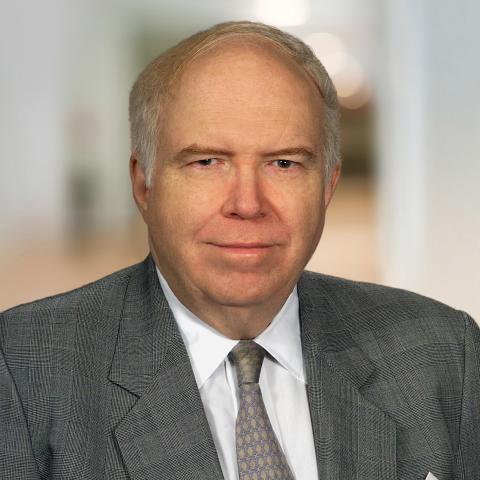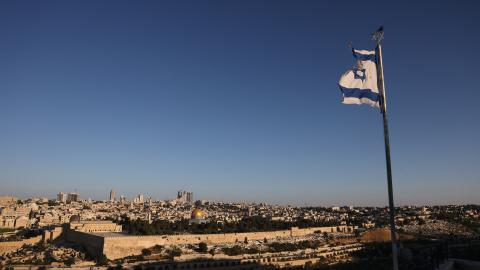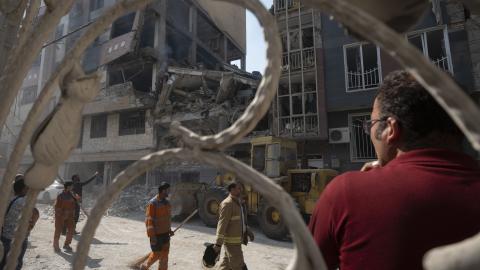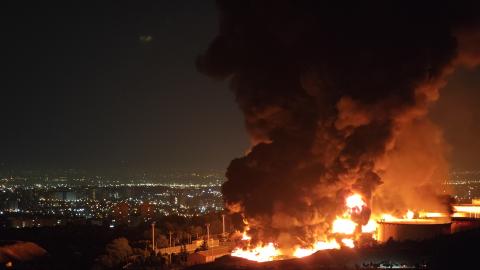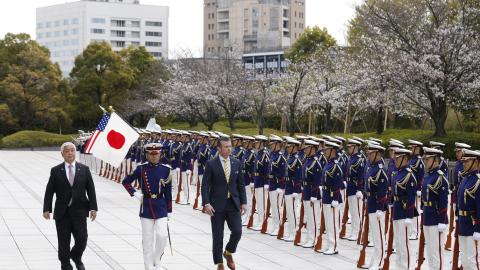A Times of Israel story on August 17, 2012 just over a year ago was headlined with words of relief: "'Thank God, there are almost no Jews in Syria now' says the woman who rescued most of them."
The article, by Rafael Ahren, had as its backdrop the horrific civil war in Syria, which by then had already claimed 20,000 lives. But Ahren was reporting on something more uplifting the fascinating story of Judy Feld Carr, a Toronto musicologist and a modern-day heroine. Over a period of about 30 years, beginning in the mid 1970s, the brilliant and determined Ms. Carr managed to smuggle 3,228 Jews out of Syria.
Amid the brutal civil war raging there today, the importance of her remarkable life-saving operation is particularly significant.
In his landmark book In Ishmael's House: A History of Jews in Muslim Lands, historian Martin Gilbert (no relation) explains that, after the founding of the state of Israel, Syria's Jews became captives in their own homeland. They were subject to terrible abuse and draconian laws, the first of which literally imprisoned them: "The Jewish right to emigrate is completely forbidden. This applies even to Jews in Syria who hold foreign passports."
That was just one of twelve outrageous edicts, including "Jews are forbidden to own radios or telephones, or to maintain postal contact with the outside world; no telephones may be installed in Jewish homes." Furthermore, all Jewish properties were confiscated by the state when the owners died.
In 1975, President Hafez Assad explained why he refused to permit his country's loathed Jewish population to leave (they were tortured and sometimes murdered when they tried to escape). "I cannot let them go," he said, "because if I let them go how can I stop the Soviet Union sending its Jews to Israel, where they will strengthen my enemy?"
Eventually, thanks to the combined efforts of numerous Jewish organizations, and spearheaded by Judy Feld Carr, Syria's Jews were smuggled out of the country often one by one or otherwise set free. Today only a handful of Jews remain there.
In my book Saturday People, Sunday People: Israel through the Eyes of a Christian Sojourner, I describe the expulsion of 850,000 Jews who fled or were forced to leave Muslim countries in the mid 20th century. I juxtapose this underreported tragedy with the present persecution of Christians in those same lands.
The Islamist motto, "On Saturday we kill the Jews, on Sunday we kill the Christians" or, more tactfully, "First the Saturday People, then the Sunday People" isn't just a slogan. It's a plan for religious cleansing, pronounced by radical leaders and enacted by jihadi warriors.
Today, nearly all the Saturday people are gone from the countries that were their homelands for centuries, even millennia.
And, today, the Christians the Sunday people are paying a terrible price for their faith. Particularly in Egypt and in Syria, where virtually no Jews remain, stories of assaults on Christian homes and businesses; wanton destruction of churches; the disappearance, rape, and murder of women; mob-driven atrocities against women, men, and children; and the murder of priests and pastors are reported nearly every day.
An example: Even as America and Russia continue their danse macabre around WMD accusations, Syria's ancient Christian village of Maalula has been attacked by rebel forces some of them affiliated with al-Qaeda. On September 11, a source inside the country reported to Nina Shea at the Hudson Institute's Center for Religious Freedom:
More than 30 Christians are missing, 6 have been killed, we have the names of 3 of them. The Mor Serkis monastery has been bombed, but we don't know about the damage. Most of the residents fled to Damascus, those who have not been able to get out of their houses because of ongoing fights between opposition groups and Syrian military, remained in Maalula. The Jabhat al Nusra, Free Syrian Army and the Syrian army occupied Maalula.
Unlike countless other cases, which are barely noted in the Western media, Maalula has received attention because the scenic village a popular tourist site is on a list of candidates for UNESCO World Heritage site designation, and the Christian population still speaks Aramaic, the language of Jesus.
About the Syrian civil war, Judy Feld Carr said, "I can't even fathom such barbarism although in the years that I was doing this rescue, what they did to Jewish prisoners was beyond everything I could have ever believed. I don't think the Jews would be alive today if that community of over 3,000 was still there . . ."
It is a thought-provoking remark. Some informed observers fear that the Christian communities of the Middle East the cradle of Christianity will no longer exist in another hundred years.
Syria's brutal treatment of its minorities is tragically reflected in an AFP report, also posted on September 11, in which Rasha, a young Maalula woman, described a phone conversation that took place when she was trying to locate her fiancé Atef.
"I rang his mobile phone and one of them answered," she said.
"Good morning, Rashrush," a voice answered, using her nickname. "We are from the Free Syrian Army. Do you know your fiance was a member of the shabiha [pro-regime militia] who was carrying weapons, and we have slit his throat."
The man told her Atef had been given the option of converting to Islam, but had refused.
"Jesus didn't come to save him," he taunted.

